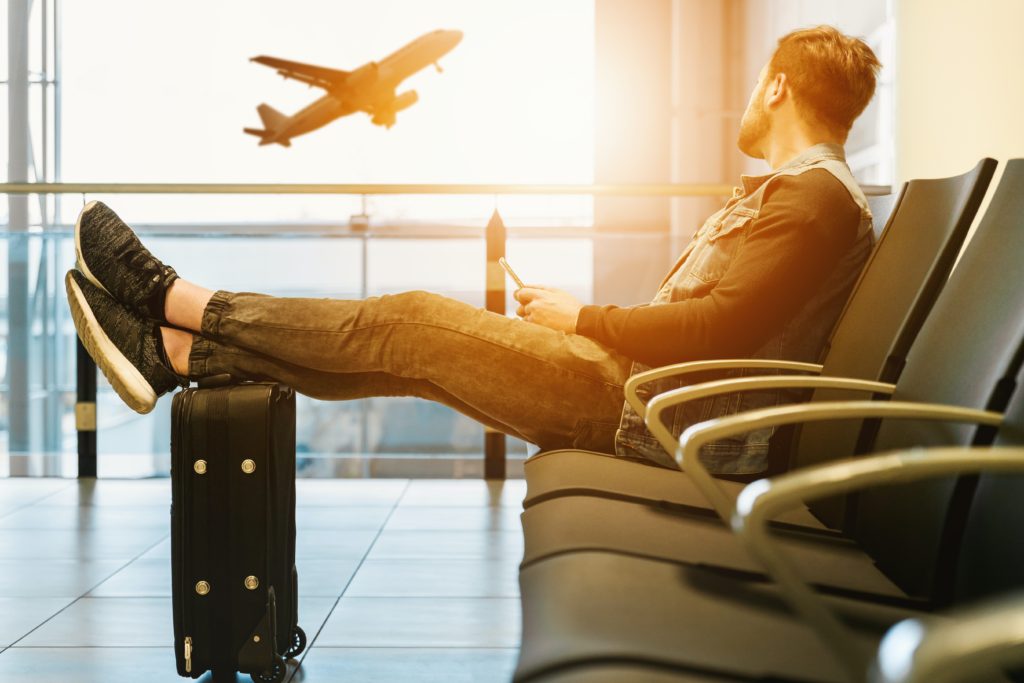
Each spring, the excitement was already palpable: my next journey was planned, my gear was ready, and I was looking forward to some time away from work and from the city. This year, it’s different. I imagine it’s different for you. If you used to enjoy travels as much as I did, I imagine it’s also not the easiest time for you. Are there any good alternatives to travel which can help us feel better about it all?
Why it’s important to have alternatives to travel
If you’re reading this in 2020, you will know all about the importance of staying in, avoiding long journeys, and of remaining in place. I do not know how long the lockdown will last, or what effect it will have on the travel industry. But even if you’re reading this after 2020, there’s a strong chance that the following is true: you miss travelling, and you’re looking for some alternatives to travel.
At its best, going on a hike or a journey somewhere was the best part of my year. I think that trying to find out why travelling feels so good is important. It would help us decide what to look for in alternatives to travel – since these would be the effects we would be looking to replicate.
Here is a list of why travel made me feel great:
- I was able to learn something new every day
- I was always ready to be surprised by something
- I was meeting people, but never overstaying my welcome (#introvert)
- I was out of my comfort zone, but never too stressed
- I was moving around much more, which helped me think
Three alternatives to travel – pick your own
1. Reading (or writing) travelogues
Travel writing must be my favourite way of dealing with cabin fever these days. It’s just so great to be able to read about new (or familiar) places, and to follow other people as they describe their journeys. A good travel writer is, to me, like a magician: they will be able to tell their story so convincingly that you will believe you are there with them.
If you’ve read enough travelogues – and seen enough of the world around you – why not start writing these? This could be one of the more creative alternatives to travel: you would be re-living your adventures by trying to make them into a story. Look through your photo albums, and see if there’s a narrative in there.
2. Exploring locally
This, of course, depends on how much you are allowed outside. Here in London, we are definitely OK to go for walks these days. And since parks are way too full for our liking, we walk the streets of our neighbourhood.
It’s been great so far – we’ve seen plenty of places which we may have known about before, but never got the chance to get to. We’ve slowed down when walking down the streets which we usually rush past. We’ve smelled the flowers, scratched the cats, heard the blackbirds.
It’s easy to discount the place where you live, and to take it for granted. But in strange times, becoming a traveller in your own neighbourhood may be one of the nicer alternatives to travel. Who knows, maybe you’ll feel as if on a holiday!
3. Plan your next trip
Perhaps your travel budget just never got spent this year. Maybe this year’s trip needs to be re-booked. Or maybe you are in need of a distraction. Whatever it is: there is merit in planning future journeys in strange times. It takes your mind off the here and now. It allows you to dream and get excited about your passion. And it also helps you learn new things – perhaps even helps you decide to learn a new language?
Start planning your next big adventure today. Don’t worry about how feasible or how practical it is. Go for it, if it makes you feel better: do the whole itinerary, gear checklist, moodboard…travel in your head for as long as it takes to feel better about not travelling in real life. Save your work somewhere, so you can do the next batch of planning when the wanderlust hits again.
Would any of these alternatives to travel “scratch the itch” for you? Anything else you would add?
(Photo by JESHOOTS.COM on Unsplash)
Wiktor (Vic) Kostrzewski (MA, DELTA) is an author, translator, editor and project manage based in London. When he works, he thinks about languages, education, books, EdTech and teachers. When he doesn’t work, he probably trains for his next triathlon or drinks his next coffee.
BRAVE Learning (formerly known as 16 Kinds) is a lifelong learning and productivity blog. If you enjoy these posts, please check out one of my books and courses.
My recent publications, and my archive, is now all available on my new project: PUNK LEARNING. Hope to see you there!
